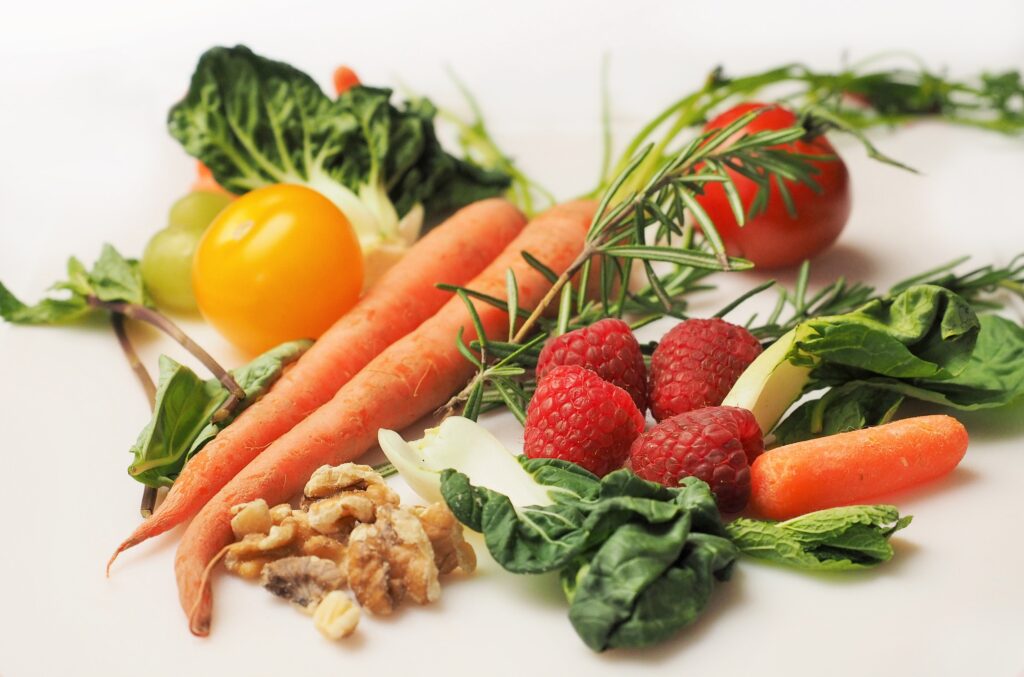By Rachel Ellen Green, CPT
Food provides fuel and nutrients to your brain to allow proper function. What you eat has the ability to keep the brain sharp as you age. There’s no exact way to stop cognitive decline, however, eating high-quality, nutrient dense foods can slow degeneration.
Your gut has a direct effect on your brain health. Alterations in the gut have been linked to various neurological diseases, stress, mental health disorders, hormonal imbalances, inflammation, and more. The gut can even influence your behavior and produces 95% of the serotonin in your body. The brain is constantly active, contributing to a large portion of your metabolic rate. Therefore, what you eat is used to fuel both the body and the brain.
A regularly healthy diet can contribute to better mental function. Try incorporating plenty of fruits, vegetables, healthy fats, and whole grains on a daily basis. Avoid diets high in sugar and saturated fat. They increase inflammation, oxidative stress, and slow cognitive functioning. Here are some foods that promote healthy brain function:
Fatty fish – salmon, tuna, trout, sardines
Fatty fish is full of omega-3’s. Studies have shown individuals with high omega-3 levels have more blood flow to the brain and increased cognitive ability. Your brain is 60% fat. Not only do omega-3’s benefit brain function, they’re also the building blocks of your brain.
Click Here for a Healthy Baked Salmon Recipe
Foods high in antioxidants – blueberries, strawberries, beets, dark chocolate, spinach
Antioxidants prevent oxidative stress on the brain. This can contribute to cognitive decline and age-related neurodegenerative diseases. Blueberries are high in antioxidants and have anti-inflammatory properties.
Click Here for an Antioxidant-Packed Smoothie Recipe
Green-leafy vegetables – broccoli, kale, spinach
Leafy vegetables are full of vitamins and nutrients to fuel your brain. Broccoli, spinach, Brussel sprouts, and other green vegetables contain vitamin K. Eating foods higher in vitamin K can improve memory and reduce age-related cognitive decline.
Click Here for an Easy Broccoli and Brussel Sprout Recipe
Probiotics – supplement, yogurt, fermented foods
Probiotics improve gut health and function. The gut can affect the brain and vice versa. Your gut produces 95% of the body’s serotonin. If the protective lining of the intestines is damaged, your nutrient absorption, mood, and neural pathways between the gut and brain will be negatively affected. Try supplementing with probiotics and consume more fermented foods. You can get plenty of probiotics through yogurt, kombucha, sauerkraut, pickles, tempeh, and more.
Click Here for a Gut-Healing Breakfast Recipe
Caffeine – coffee, tea, chocolate
Polyphenols are micronutrients full of antioxidants. These are abundant in coffee, tea, and cocoa. These are also found in celery, herbs, citrus fruit, and more. Polyphenols can reduce inflammation. In addition, it can improve learning, working memory, and cognitive function. Long-term use of coffee may reduce the risk of neurological disease potentially due to high concentration of antioxidants.
Click Here for 6 Ways to Boost Your Morning Cup of Coffee
Nuts – walnuts, almonds, cashews
Nuts are an excellent source of healthy fats and have been linked to improvements in memory. Higher consumption of walnuts in particular have increased cognitive test scores. Try incorporating more nuts and nut butters in to your diet.
Click Here for a Homemade Walnut-Cashew Butter Recipe
Turmeric – supplement, curry
Turmeric is an antioxidant and has anti-inflammatory properties. Studies have shown turmeric can improve mood and memory. Chronic inflammation can contribute to may diseases, including neurodegenerative diseases.
Click Here for an Easy Chickpea Curry Recipe
Try incorporating these items in to your normal diet and your brain will thank you. For more information on nutrition and brain function, click here.


